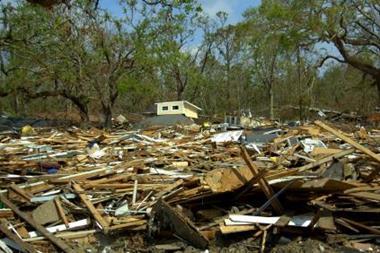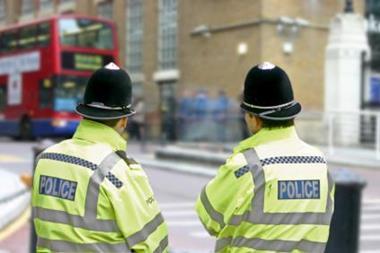Lee Coppack discusses the findings of a new study on global business and the threat of political violence
Many business leaders believe the threat of terrorism is real and rising, and this fear is affecting their decisions. Yet, their understanding of the risks to their own businesses is limited, and a significant minority does not make adequate preparation to deal with political violence or its aftermath.
These are the findings of a study published by Lloyd's in cooperation with the Economist Intelligence Unit (EIU), called: Under Attack? Global Business and the Threat of Political Violence. In an introduction to the report, the chairman of Lloyd's, Lord Levene, comments that boards are spending an increasing amount of time discussing political violence and associated risks. ‘But the decisions they take are not always the right ones. There appears to be a significant gap between a growing risk awareness and tangible action actually taken by many companies, driven by a lack of understanding of the dynamics they encounter as they globalise.’
The survey recorded the responses of 164 board level executives around the world, with 31% from Asia-Pacific, 27% from North America, 24% from Western Europe and the balance from the rest of the world.
A large proportion of the executives came from business sectors that produce largely intangible products, which may have affected some of the results. Financial services were the most strongly represented industry with 26% of the responses, followed by professional services at 15% and IT and technology at 12%. Managers from energy and manufacturing sectors made up 8% each.
Nearly 60% of those surveyed expected to see political violence or terrorist activity increase or increase greatly over the next five years. In the eyes of these business leaders, four key threats were emerging: damage to their supply chains from incidents elsewhere, attacks on IT systems, the rise of home grown terrorism and chemical, biological, nuclear and radioactive (CBNR) weapons.
This fear is already absorbing substantial corporate resources in terms of management time, increased spending and lost opportunities, the report says. For example, 37% said that they had avoided investing in certain places; 20% had abandoned an otherwise promising business activity as a result of political violence in the past five years.
Lack of understanding
At the same time, the survey found that risk assessment and response planning was patchy. The report states that only 37% of business leaders believed that their companies had a strong understanding of their exposure to political violence, and 22% did not address these risks systematically, even within broad risk management strategies.
The biggest deficit was a co-ordinated strategy for information gathering. ‘Perceptions of risk appear to be driven by media headlines rather than rigorous analysis.’ More than half the companies relied exclusively on international media to learn about the risks and, ‘most worrying’, was that more than 60% lacked a mechanism for employees to feed their knowledge into the company's risk analysis.
The report comments, ‘Companies are devoting substantial resources to mitigate the risks of political violence. They are also foregoing significant business opportunities. They are not, however, always investing their time and resources in the right places. The main reason seems to be that they are not doing enough to analyse and understand the real risks against their business.’
Several factors could be at play. One is that, while companies believed the threat of political violence was increasing, they did not always link this to their own operations. For instance, many western companies are investing in India, but not all of them appreciated the risks of political violence in the country, states the report.
Within the report, there is a degree of uncertainly over the extent to which corporate behaviour affects the risk. Executives from all regions believed they were targeted by violent groups because of issues over which they had little control. Only 8% felt that attacks were directed at a specific company or its practices, while 16% saw their firm's home country as the motive and 25% thought it was capitalism as a whole.
The report says that when businesses are the target of terrorists, it is usually because of what they represent rather than what they do. ‘Global brands can assume symbolic significance for terrorists.’
In terms of mitigation measures, 41% of the business leaders said they had increased IT security, 30% had reviewed their criteria for selecting business partners, 23% bought more insurance, 22% changed their travel policies and 21% increased employee training.
Another vital step was to build the risk of political violence into the business continuity plan, which, the report comments, assumes that the company has one in the first place. Twenty-three percent of the sample did not, and a further 14% believed their plan was inadequate to meet their exposures.
The report does not minimise the dangers of political violence, but argues that business needs to keep the threat in perspective; it is one of several serious risks and not necessarily the worst. Objectively, if Iraq is excluded, the number of wars and international terrorist attacks worldwide has fallen to historically low levels, according to two expert bodies the EIU cites: the Human Security Centre at the University of British Columbia and the Memorial Institute for the Prevention of Terrorism (MIPT), a non-profit US think tank.
Despite their comments on rising levels of political violence, with the exception of North Americans, the business leaders themselves were more worried about the impact of a pandemic on their supply chains than a terrorist attack, and the majority of companies did not feel a direct assault on their facilities and personnel was very likely. Two-thirds of the business leaders remained concerned about the perennial, non-violent risks of higher taxes and more regulation.
The report points out, however, that although the statistics indicate abating political violence, the future is unpredictable. Terrorism does not follow simple statistical patterns. The conflict in Iraq is spawning political violence that could spread internationally; previously local groups are allying themselves with al-Qaeda and small, unstable militias are controlling areas where they operate. ‘Learning how to deal with these situations will take many companies into unchartered territory.’
Emerging risks, particularly climate change and shortages in natural resources are also likely to magnify the threat of political violence, comments the report. Conflicts often revolve around the division of natural resources, which throws the spotlight on companies involved in their use. “While it is difficult to predict how climate change might trigger increased political violence with any certainty, it is clear that these issues can only add to the complexity of the risk environment,” is the conclusion.
Severity not frequency
The contrast between the potential for political violence and its current threat to businesses continued at the high level seminar which Lloyd's held following publication of the report.
Sir Richard Mottram, permanent secretary, intelligence, security and resilience for the UK government's Cabinet Office, said that from the perspective of its impact on citizens, a full scale influenza pandemic was a bigger risk than terrorism. Long term, climate change, too, posed a whole range of possible risks. However, he added, “Home grown terrorism is the biggest security risk we face.”
Mike Bowron, commissioner for the City of London Police, said, “The City has been, and probably will always be, a terrorist target. The threat is real and unending.” Peter Clarke, assistant deputy commissioner of the Metropolitan Police, pointed out that the objectives of Al-Qaeda and other jihadi groups are different from those of the Irish republicans, “They don't just want to damage a business but to destroy it, to collapse the building with everyone in there. It is not just a question of business continuity but of business survival.”
Clarke urged businesses to find out how potential attackers could gather vital intelligence about their businesses, people and facilities. He said that the convicted al-Qaeda plotter, Dhiren Barot, had been able to carry out “enormously detailed reconnaissance” of potential targets and had filmed and noted many details of their operations. He had used publicly available information sources.
Companies, he advised, should ask themselves how much of the detail of their business that could be relevant to terrorists is available from open sources. “I suggest probably more than most of us recognise.”
John Smith, head of group security at Prudential since 1992, said that terrorism was a risk like others with the difference that, unlike others, it involved deliberate taking of life. It focussed the board's mind when he told them that they could all be victims and so should have a succession plan in place.
Richard Fenning, CEO of risk consultancy Control Risks, said he found it “extraordinary” that more than one-third of the companies surveyed had been deterred from investing in certain places by the threat of political violence. “There is not that much political violence in the world. International terrorism should not be a deterrent to expansion.”
One of the biggest problems for business and the general public, he said, is how not to over-react to the latest development with very short term bursts of energy.
Lee Coppack is editor of StrategicRISK's sister publication, Catastrophe Risk Management, E-mail: lee.coppack@strategicrisk.eu
















